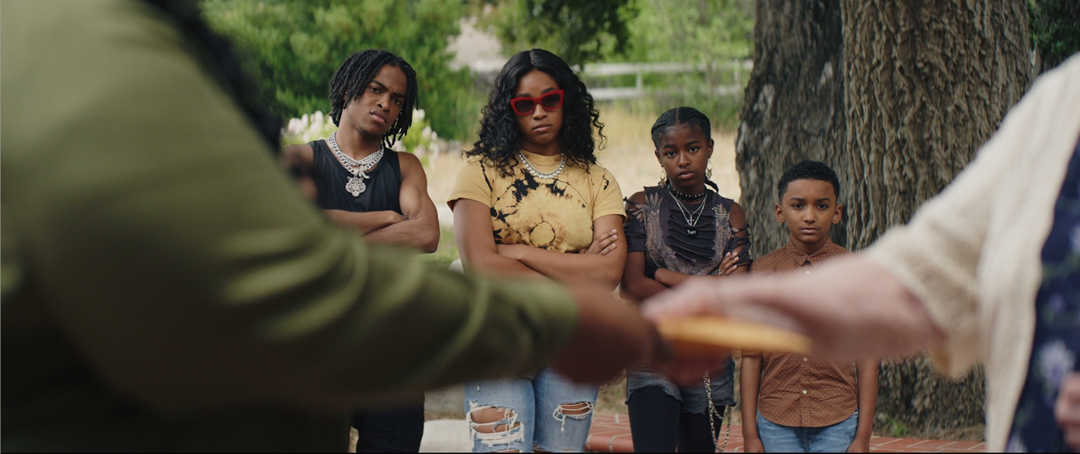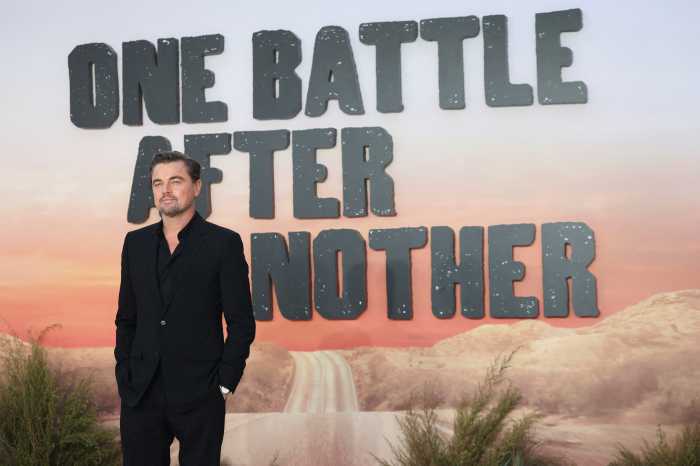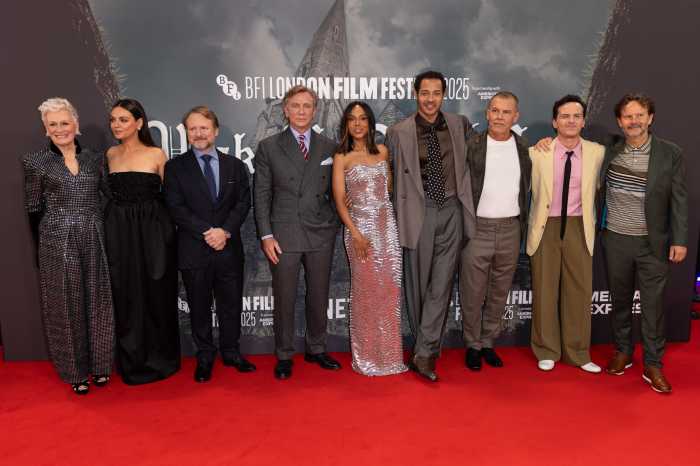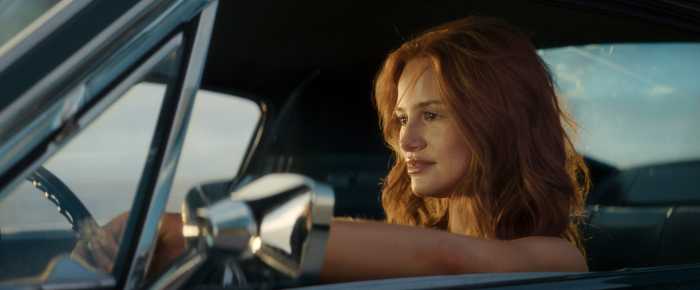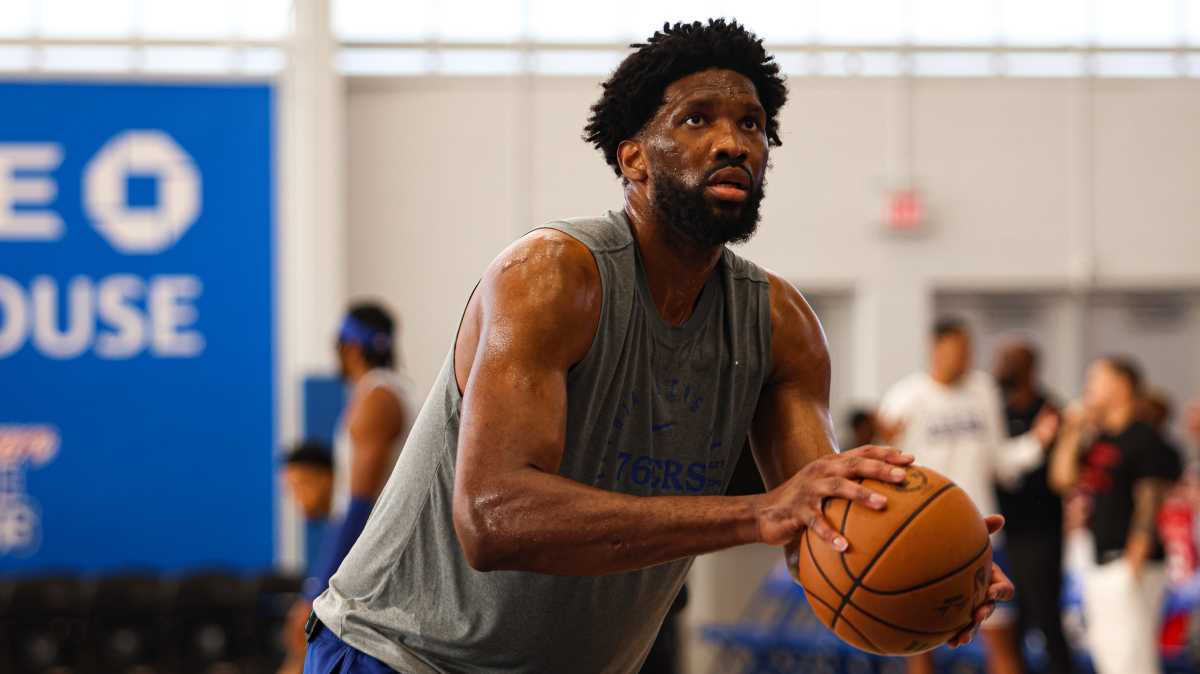With this new remake of ‘Don’t Tell Mom the Babysitter’s Dead,’ writer Chuck Hayward and director Wade Allain-Marcus wanted to pay homage to the original (which came out in 1991), but also, create a story of their own that worked for this time period. To delve deeper into what went into the script, characters and overall story, Hayward and Allain-Marcus sat down to discuss bringing a classic back to life with some fresh (and timely) updates.
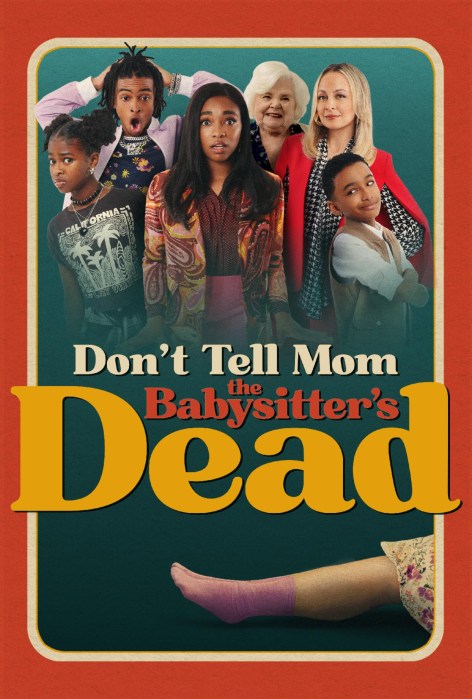
Wade, what made you want to sign on and direct this film?
Allain-Marcus: The first thing that jumped out was the comedy. It was like, dang…this is actually funny. Anybody will tell you that it’s rare to laugh out loud when you’re reading a script. So when you do, you have to perk up a little bit because it means something. The second thing is the grounded reality of these characters that exist by themselves, and then also in relation to each other.
I thought Chuck did such a good job of being able to delineate these four very different Black kids. That was exciting for me, to be able to reflect my own family. I’m also the oldest of four, so to be able to show very different kinds of kids that exist and live in the same house just felt very real to me.
Chuck, similar question for you. When going into writing this, how did the idea first come to you, and what did you want to achieve with this remake?
Hayward: Well, I’m a huge fan of the original, it’s a movie that’s meant so much to me. So to be able to introduce it to another generation is really exciting. But also, I have in my writing, or my agenda if you will, talking about mental health issues in the Black community. I think that’s something that’s very important, and we deal with that with the mom [in this film.]
Then also just showing more Black weirdos…there’s one or two types that we get to see of Black characters often, and in this movie, there’s just such an array. And not just the kids, also the people at the office. There’s just a lot of different types of people, and for me, that was important.
What makes a good remake? And how did you try to make this an ode to the original but also unique on its own?
Hayward: I think what makes a great remake is if it is an homage… there are some times that it feels like you’re trying to one-up the original. That wasn’t my thing. It was showing love to the original, that was my goal in it.
Allain-Marcus: I would say what makes a great remake is just making a great movie—making something that feels real to you in the moment with the pieces that you have. And of course, you want to be in conversation with something that has come before if there is that connection. So we really tried to walk that line of being like, yeah, we want to give our flowers. We do have a lot of love for this original thing, but also, it’s completely different because of who’s in it and because of what time we’ve made this movie.
Wade, being an actor yourself, does that experience help you when stepping behind the camera?
Allain-Marcus: Oh yeah, absolutely. It’s interesting, a lot of people think that acting and directing are wildly different—but the truth is that they’re both about interpreting the writing. Both actors and directors are all about interpreting what’s on the page, so the job is actually quite similar in terms of what you are called to do. Then of course, there’s the being on set and the shorthand of the language of trying to help someone get to a real moment. Having a background in that allows that shorthand to be there.
Hayward: He’s a writer as well—I’m going about brag him a little bit. We’re Kenya cousins, I call us. He wrote on ‘Grown-ish‘ and I wrote on ‘Mixed-ish’, and so I think having that background also as a writer, he is just interpreting the material in a way with that shorthand. We’re not really speaking to each other, but he’s getting what I’m putting on the page. When I saw it on screen, I was like, dude, this guy is in my head. I’m really grateful that he saw the same vision that I did.
The music in the film is also a character in itself. What went into crafting the soundtrack?
Allain-Marcus: Chuck had a vibe written into the script wanting it to be youthful, and that’s all there. We have some amazing artists from today like Tierra Whack and Lebra Jolie and Jordan Ward. But I also wanted to jump over to the score to make something that felt timeless, that was more like a John Williams or a Duke Ellington [vibe.] Something that would belong in a John Hughes film, which normally, we don’t get to have that as Black people. So being able to have a diversity of sound.
Then of course, we have throwback stuff. The credit sequence is to William DeVaughn, and then we have Herb Alpert. That’s one of my favorite sequences is the scene in the arcade—we shot that in a Dave & Busters at a time when the it was still open, so there was a lot of sound and noise to contend with. So how else can we use this? To make it a cutup that then lends itself to something that feels a little more romantic, and to give it a song that you wouldn’t necessarily associate with people this age—all of a sudden in my head I thought, maybe this will create something new and distinct.
‘Don’t Tell Mom the Babysitter’s Dead‘ debuts on streaming platforms Nov. 19.



